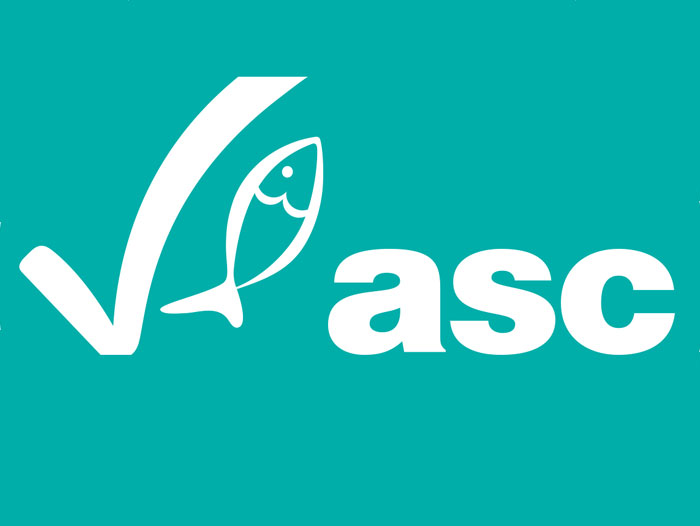Promoting Transparency and Verifiable Performance: ASC Releases First SDG Report
December 19, 2022 | 6 min to read

The Aquaculture Stewardship Council (ASC) has released a report that looks at how responsible aquaculture can contribute to the United Nation’s 17 Global Sustainable Development Goals (SDGs). The paper also develops a methodology to quantify how ASC verifiably contributes to these goals.
The 17 SDGs and their 169 associated targets are at the heart of the 2030 Agenda for Sustainable Development, which was adopted by all 193 United Nations Member States in 2015, with a target date of 2030. These are designed to encourage global, national, and local strategies that seek to achieve reduction of climate change and poverty, reduce inequality, improve education and health, and spur economic growth, whilst tackling climate change and working to preserve our oceans and forests.

How ASC Aligns with SDGs
Our findings show that globally, ASC addresses targets within all 17 SDGs, and more than 80% of these are considered to be well or very well addressed.
Just under half (49%) of the SDG targets are specifically applicable to global aquaculture and therefore to ASC’s work, but we found synergy with all 17 SDGs through our programme and wider work. In particular, ASC addresses targets within SDGs on Zero Hunger (2), Clean water and sanitation (6), Responsible consumption and production (12), Life below water (14), Life on land (15), Peace, justice and strong institutions (16) and Partnerships for the goals (17). We also found that we have a strong alignment with SDGs on achieving No Poverty (1), Decent work and economic growth (8), Reduced inequalities (10) and Climate action (13).

Figure 1. The SDGs that are relevant to ASC and our performance
“Improving aquaculture is at the core of the ASC’s mission, and we believe that it should play a major role in supplying food and social benefits for humanity, whilst minimising negative impacts on the marine and terrestrial environment. How aquaculture performs generally against the SDGs and how this contribution to social, environmental and societal benefits demonstrably improves is essential. Understanding these positions related to the SDGs is therefore a priority and we are pleased to make public this important piece of work,” said ASC CEO Chris Ninnes.
“More importantly, we aim to build support amongst global decision makers about the vital contribution that responsible aquaculture makes to achieving our collective ambition to meeting the SDGs.”
Our detailed report outlines, quantifies, and colour maps how each of the SDGs and targets are addressed by ASC and discusses areas where we align well and where there is room for improvement.
On top of assessing the relevance of ASC certification, we also looked at our wider actions, which result from the impact of the ASC programme on local communities, or via our advocacy on the local, national, and global stage, and in the international governance landscape and the marketplace.
We also undertook a gap analysis and compared ASC performance with non-certified aquaculture, where claims may be self-declared, not backed up by transparent data or not verified by third parties, which can potentially lead to greenwashing.
Data Quality: A Crucial Element in Transparency in Aquaculture
Overall, according to the UN, global progress towards delivering on the SDGs has slipped in the past years due to factors including the COVID-19 pandemic, and recent events on the world stage such as the Russia-Ukraine war. As a result, stringent monitoring and questioning of sustainability data quality is ever more important.
Beyond highlighting the potential of aquaculture to deliver on SDGs, we found a general lack of verifiable performance data within the aquaculture industry, which is a missed opportunity. ASC believes that key stakeholders, governments, financial institutions, and investors will increasingly require that SDG performance is third-party audited and transparent, to provide high quality data assurance. We also believe that aquaculture certification requiring transparent data disclosures can provide them with a proxy to making their own credible and third party verified SDG claims and help to de-risk supply chains.
Roadmap Towards the Future
“We consider the report to be a roadmap that details our journey towards environmentally sustainable and socially responsible aquaculture, and our aim is to produce it each year to track our own progress towards the 2030 goals and targets,” said Bertrand Charron, ASC’s Director of Market Research and Insight.
“The SDGs highlight some of the greatest sustainability challenges we face, common to many industries and regions of the world. However, what’s currently missing is updated and quality SDG data. We believe that transparency and timely public disclosure of aquaculture operations’ performance will be key to ensuring that SDGs are being addressed and met by the industry.”
Having paved the way and set the standard, ASC hopes that corporations and organisations will begin mapping and objectively quantifying their own substantiated progress towards meeting the SDGs and help add knowledge to the field of aquaculture.
To learn more about how ASC verifiably contributes to the SDGs, check out this page for more information.
About the ASC
The Aquaculture Stewardship Council (ASC) is an independent, not-for-profit organisation co-founded by the World Wildlife Fund (WWF) and The Sustainable Trade Initiative (IDH) in 2010 to manage the certification of responsible fish farming across the globe.
The ASC standards require farm performance to be measured against both environmental and social requirements. Certification is through an independent third party process and reports are uploaded to the public ASC website.
The on-pack ASC logo guarantees to consumers that the fish they purchase has been farmed with minimal impacts on the environment and on society.
For more information about ASC please visit www.asc-aqua.org.
